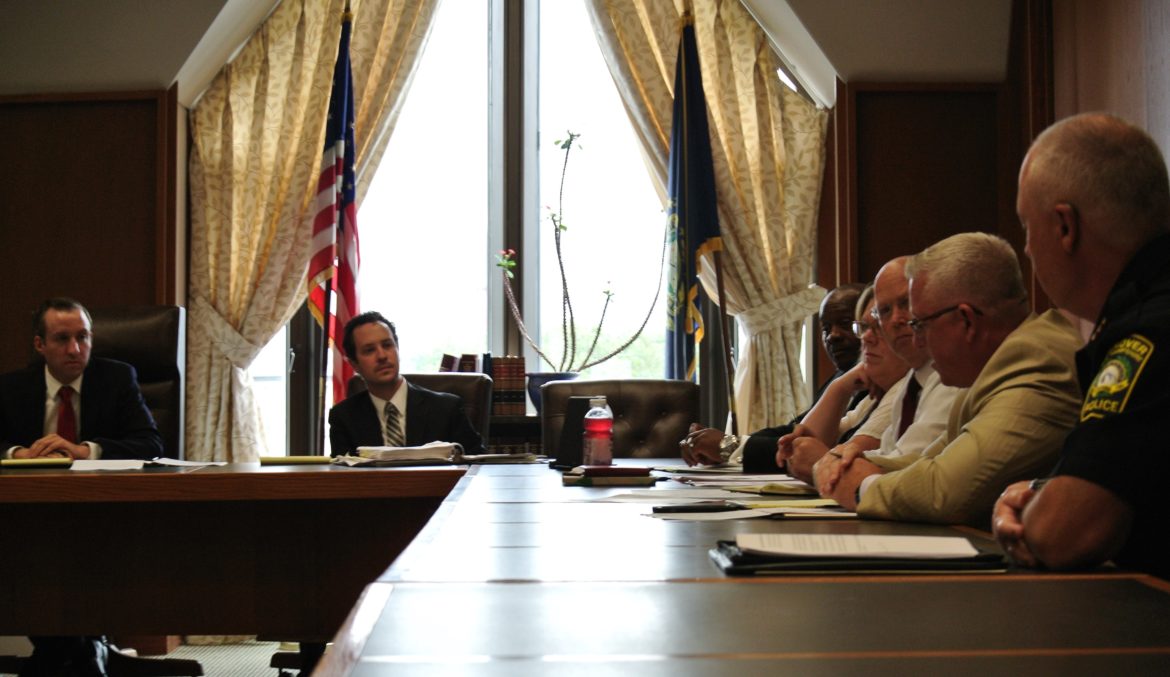By DAMIEN FISHER, InDepthNH.org
CONCORD — Police accused of misconduct in New Hampshire could soon find themselves called before a new state entity tasked with adjudicating the complaints.
This still unnamed entity is one of the major pieces from last year’s Law Enforcement Accountability, Community and Transparency Commission report, and it is about to become a reality.
New Hampshire Attorney General John Formella started off the first meeting on Monday of the commission that will create the entity that will handle reports of police misconduct. According to Senior Assistant Attorney General Matthew Broadhead, it is one of the final recommendations from the LEACT report to be acted on.
“This is the final big piece,” Broadhead said.
Broadhead held meetings last year on creating the entity, but found sticking points between stakeholders held up a final draft. The new commission chaired by Formella was created via legislation to finalize this new part of state government.
“I want to craft a consensus document,” Formella said.
Broadhead said there are issues about the definition of what counts as police misconduct, what would trigger an action by this new state entity, and what the difference is between the new entity and the Police Standards and Training Council. There are also disagreements about what records this entity created or handled would become public, Broadhead said.
Defense attorney Julian Jefferson, a member of the original LEACT commission as well as this new commission, said the new commission needs to deal with the tensions between the need for transparency of the process, and protecting the privacy rights of accused police officers.
“What we’re attempting here is very bold and it would be tough to do,” Jefferson said.
New commission members said Monday they first want to take a step back and assess where the state is now. Londonderry Police Lt. Mark Morrison, who was a member of the original LEACT commission, said there have been a lot of changes since the commission wrapped up, and this group ought to first get a sense of what the changes are. Sen. Sharon Carson, R-Londonderry, also recommended a presentation on what the discipline process is currently.
“I want to get grounded in what really happens here so we can understand the process,” Carson said.
The final LEACT report, released at the end of August in 2020, included 48 recommendations touching on training, data, interactions with members of the public, and police discipline.
The last recommendation in the report is for all police officers accused of misconduct to be required to go before this as yet uncreated government body that will investigate allegations against police officers and give the officer due process through a hearing before a 23-member board. All sustained allegations against police officers brought before this new entity would be part of the public record, according to the LEACT report.
The LEACT report recommended that this new process should not stop either the Police Standard and Training Council from investigating and suspending or revoking certifications for officers, nor would it stop the Attorney General’s Public Integrity Unit from investigating allegations of criminal wrongdoing.
Gov. Chris Sununu created the commission via executive order in June of last year after protests rocked parts of the country following the deaths of African Americans at the hands of white police officers, like George Floyd and Breonna Taylor.





